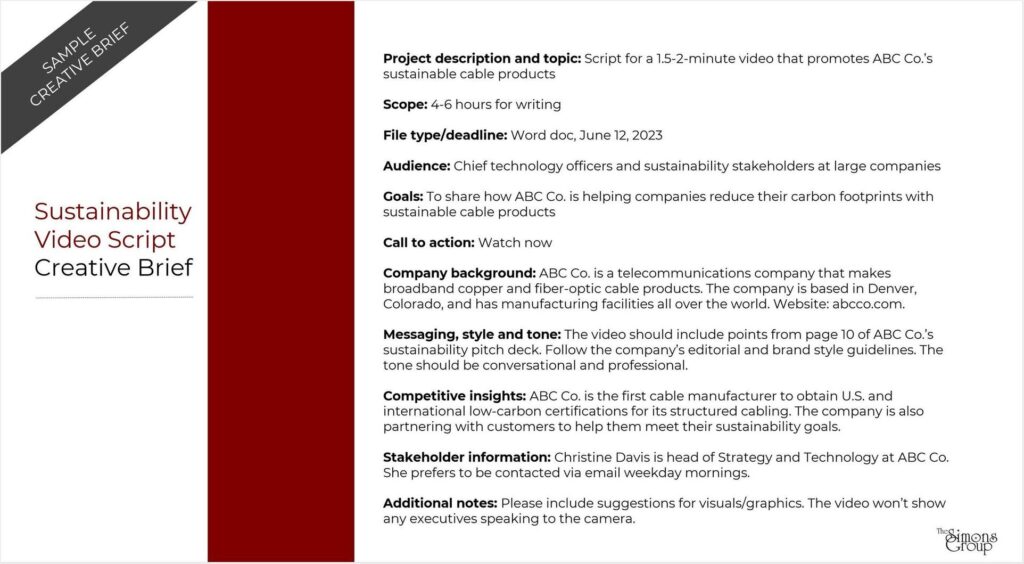The internet is full of advice about how to win at content marketing. Whether you want to create a strategy, plan and build out content or stand out from your competitors, you’ll find plenty of guides, how-tos and tips. Want to know what’s missing? No one explains how to set up your content marketing writers for success.
Why is that important? If they don’t have sufficient tools and resources, your writers won’t succeed. That means your content marketing won’t either. You’ll waste time and energy fixing their content and burning through writers to find one who meets your standards. Instead, do the hard work upfront. You’ll:
- Avoid aggravation
- Keep your writers happy
- Get the most from your content marketing investment
- Elevate your brand
I recommend following the best practices below, whether your writers are novices or veterans. They’ll be able to do their best work, which will help keep them engaged and enthusiastic. In turn, you’ll likely be more satisfied with their content than if you didn’t make the effort. Similarly, your content marketing will hit a home run.
Give your content marketing writers creative briefs
Creative briefs help your writers and other team members understand the projects they’ll be working on. Each brief should include:
- Project description and topic
- Budget/scope
- File type(s)/deadline
- Audience description
- Goals
- Call to action
- Company background (for external content marketing writers)
- Messaging, style and tone
- Competitive insights
- Stakeholder information
- Additional notes (if needed)
Let’s look at each one of these in detail:
1. Project description and topic
Your content marketing writers need the basics before they can start. Briefly describe each project. Examples:
- An 800-word blog post about a company’s quality initiatives
- A 400-word case study about robotic process automation
- A 10-page pitch deck about a wealth management firm’s services
2. Budget/scope
You might give your content marketing writers budgets for each project. Otherwise, state the time they can spend working on each one.
3. File type(s)/deadline
State the deadline for each project. Don’t write “as soon as possible.” Everyone thinks his or her project is a priority. But if every job is a rush, your content marketing writers won’t be able to prioritize their assignments. In addition, specify file types (Word, Google Docs, etc.) so that your writers know how to save their work. If you’re assigning a project that ties to an event, add that detail.
4. Audience description
Be as specific as possible so that you target your content to your audience’s needs and interests. Examples:
- School district technology officers who want to automate network maintenance
- Hospital CEOs who need solutions for significant staff shortages
- Large U.S. companies that must reduce their carbon emissions
5. Goals
What’s the rationale for your project and what do you want to accomplish? How will you use the assets your content marketing writers will create? Examples:
- Provide national sales team and distributor marketing support
- Drive awareness for a new product
- Overcome negative perceptions about supply chain challenges
6. Call to action (CTA)
Specify the action you’d like your target audience to take. The CTA is key in every asset. If you don’t include it, your audience won’t know what to do after reading your content. Examples:
- Explore more in our video
- Read our white paper on [topic]
- Connect with us on LinkedIn
7. Company background (for external content marketing writers)
When working with external writers, provide basic information about your company, including:
- A link to your website
- A summary of what your company does
- Key products and services
- Top competitive advantages
Depending on the project, it may be helpful to share your company’s values and mission statement. For example, for an article about your company’s diversity activities, share a link to your company’s values. The writer can then connect those values to the featured activities.
8. Messaging, style and tone
If the content must include specific messaging or be consistent with existing content, spell that out in the brief. In addition, many businesses have editorial guidelines that drive marketing consistency. Be sure to share those with your content marketing writers. It’s also important to explain the tone for the content. Tone is overall attitude.
9. Competitive insights
Share information about the competitive landscape to help your content marketing writers position your company effectively. What are the differentiators for your products and services? Do you have unique in-house expertise or technology? If you’re short on intel, check out Coursera’s competitor research strategies. Help your writers understand the market and how your business fits into it so they can consider the overall context.
10. Stakeholder information
Be sure to give your content marketing writers contact information for project stakeholders. In addition, let them know how stakeholders prefer to be contacted.
11. Additional notes (if needed)
Include any supplemental information that you didn’t address earlier and that will help your content marketing writers succeed.
Sample creative brief
Let’s say you’re assigning a video script to a content marketing writer. Here’s what the brief might look like:

Address ambiguity upfront
Content marketing writers who’ve worked with or for a business for a long time can usually navigate project ambiguity successfully. But those who don’t have that experience might have a tough time dealing with uncertainties. Do your best to anticipate content holes and suggest solutions when assigning work. Your writers will appreciate having that guidance and knowing that they may have to write on the fly.
Share relevant marketing collateral and website links
One of the most important things you can do to set your content marketing writers up for success is to give them existing, relevant marketing collateral and website links. That background will help your writers:
- Understand the topics they’ll be writing about
- Be consistent in messaging
- Stay on brand
- Match voice and tone
If those assets don’t exist, consider sharing background from industry resources or competitors. The goal is to help your writers grasp topics they may not have written about before. Niche or complex topics may require conversations with internal or external subject experts. Learn how to interview subject experts.
Address your content marketing writers’ questions
Once you’ve shared the background and creative briefs with your content marketing writers, follow up with them to answer any questions. They’ll be able to move forward confidently. As a result, you’ll feel good about their ability to deliver on time, on target and on budget.
When your content marketing writers win, you win
The best thing you can do for your content marketing writers is to give them everything they need before they start working on your projects. It might take extra time upfront, but it will help you and your team work effectively and efficiently. You don’t want revisions, missed deadlines and unhappy managers because someone didn’t convey project scope or goals.



